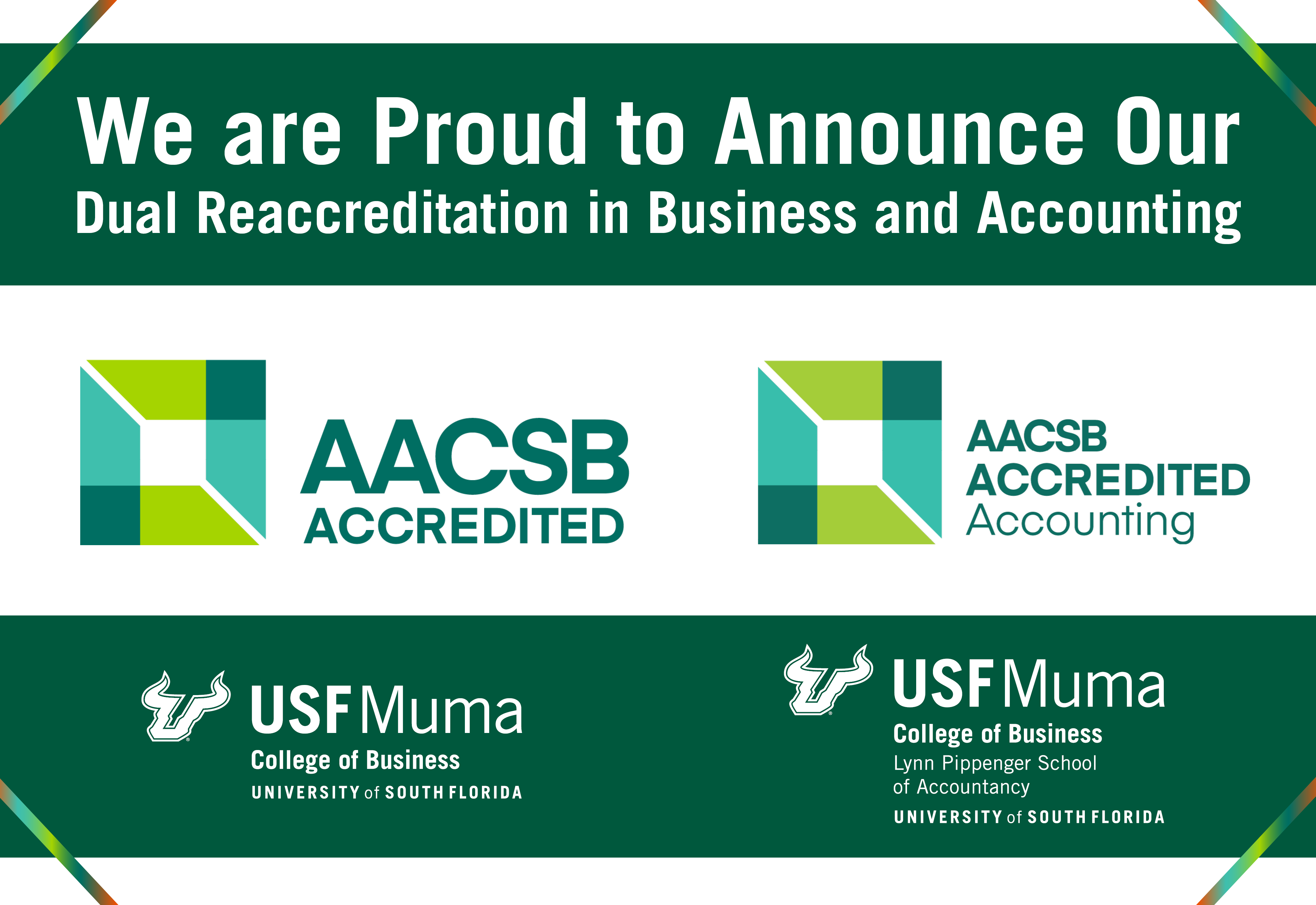TAMPA – AACSB International, the world accrediting body for business schools, announced that it is extending global accreditation in business to the University of South Florida’s Muma College of Business.
In addition, USF received supplemental reaccreditation for the Lynn Pippenger School of Accountancy, which is a part of the business college. As a result, both USF’s business and accounting degree programs are accredited for the next five years.
“I would like to express my deepest gratitude to each and every one of you for your unwavering commitment to our students and our business disciplines. Your dedication and hard work have made this accreditation process seamless and successful,” wrote GJ de Vreede, interim dean at the Muma College of Business, in a letter to the college announcing the reaccreditation news.
“I am immensely proud to be a part of our Muma College of Business family, and I am confident that our collective achievements will continue to shape the bright future of our college and programs,” he wrote.
In late February, two peer review teams from AACSB’s Continuous Improvement Review Committee visited the college. The committee’s report served as a recommendation to the AACSB International Board of Directors, which ratified the accreditation extension with zero deficiencies.
"This reaccreditation reaffirms our commitment to having the highest quality faculty, relevant and challenging curriculum, and a strong relationship with our industry partners," said Mark H. Taylor, director of the Lynn Pippenger School of Accountancy.
In addition to USF, AACSB announced on April 5 that it extended the global accreditation in business to 35 other business schools, 10 other accounting schools, and one business school, the University of Pretoria, achieved its initial business accreditation.
For more than a century, AACSB accreditation has been synonymous with the highest standards in business education.
There are currently around 10,000 business schools worldwide and a total of 981 institutions across 60 countries and territories have earned AACSB accreditation in business. Furthermore, 194 institutions maintain supplemental AACSB accreditation for their accounting programs.
“AACSB congratulates each institution on their achievement,” said Stephanie M. Bryant, executive vice president, and chief accreditation officer of AACSB. “Every AACSB-accredited school has demonstrated a focus on excellence in all areas, including teaching, research, curricula development, and student learning. The intense peer-review process exemplifies their commitment to quality business education.”
Achieving accreditation is a process of rigorous internal focus, engagement with an AACSB-assigned mentor, and peer-reviewed evaluation. During this multiyear path, schools focus on developing and implementing a plan to align with AACSB’s accreditation standards.
These standards require excellence in areas relating to strategic management and innovation; student, faculty, and staff as active participants; learning and teaching; and academic and professional engagement.
To achieve accounting accreditation, an institution must first earn AACSB business accreditation. Then, in addition to developing and implementing a mission-driven plan to satisfy the business accreditation quality standards, accounting accreditation requires the satisfaction of a supplemental set of standards specific to the discipline and profession of accounting.
Once accreditation is achieved, each institution participates in a five-year continuous improvement peer review to maintain high quality and extend its accreditation.
